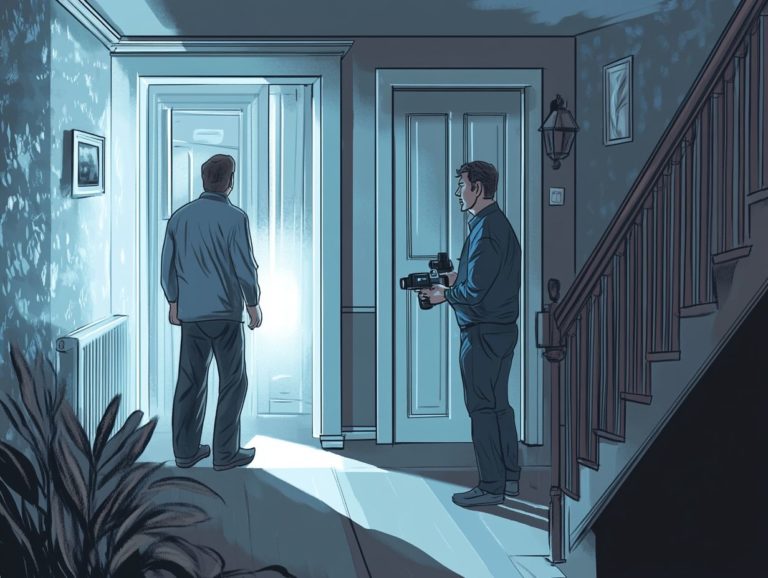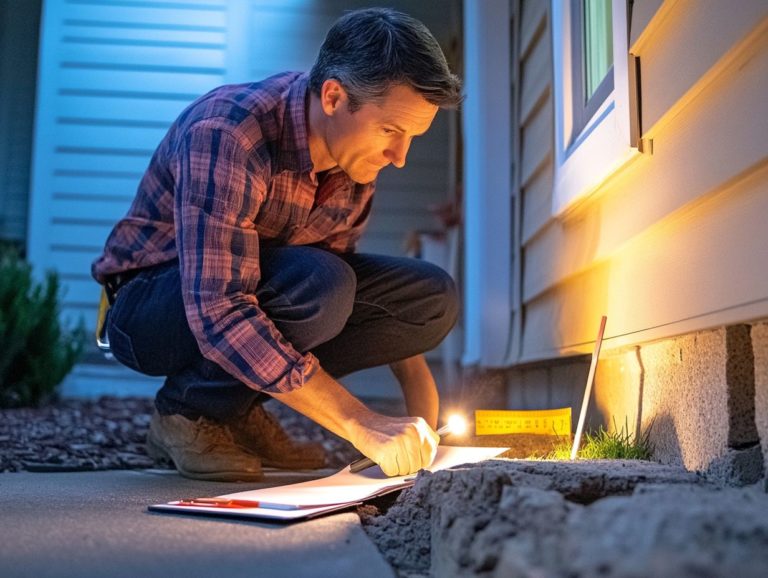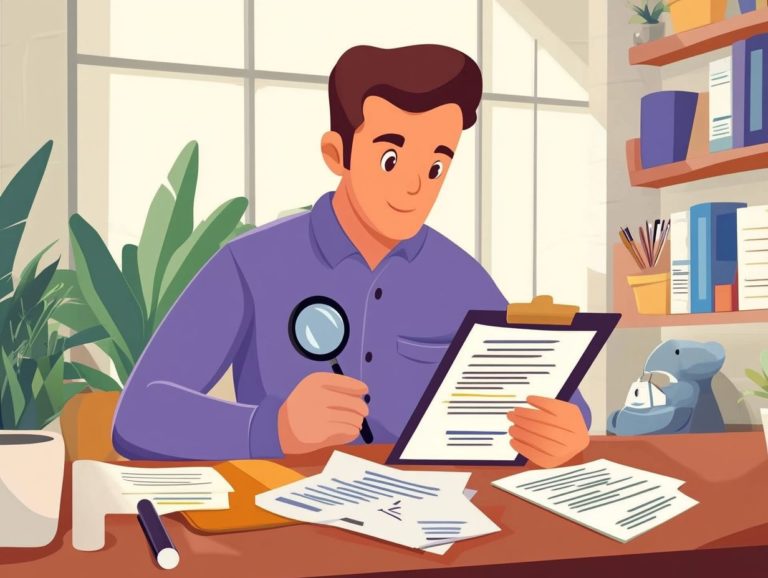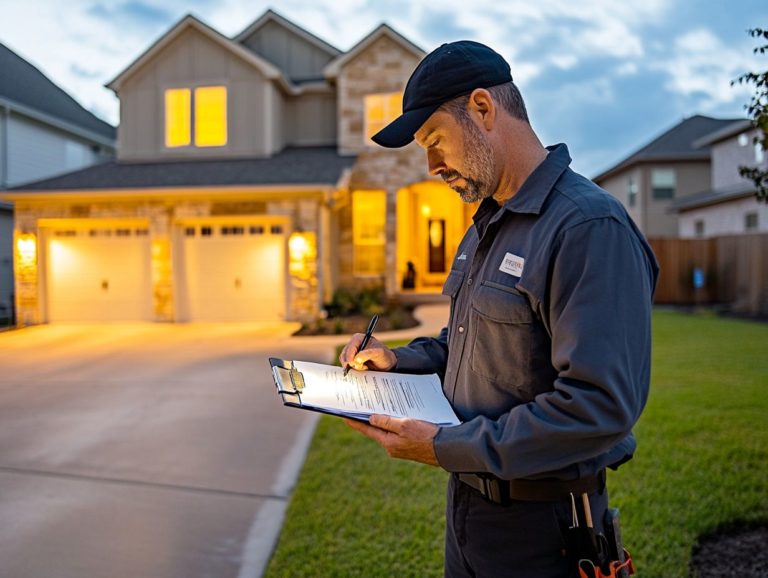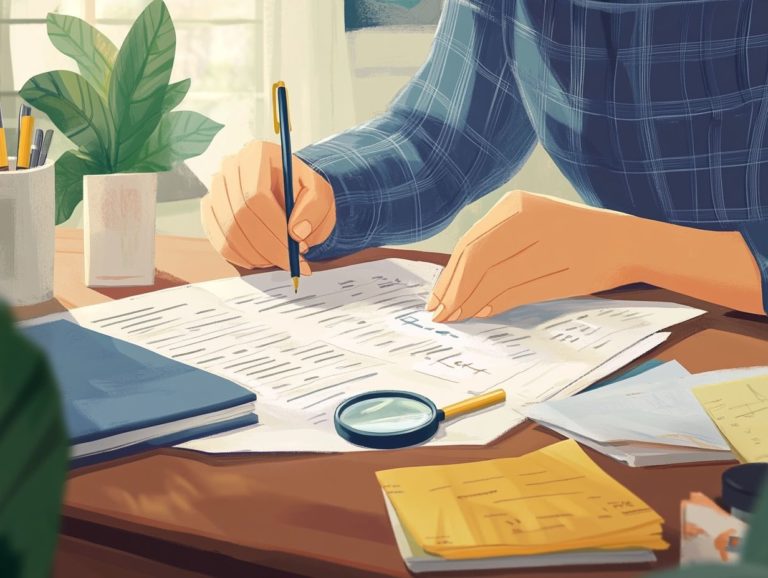5 Must-Have Qualities in a Home Inspector
When it comes to purchasing a home, having a skilled home inspector by your side can truly make all the difference. With so much on the line, it s essential to understand the key qualities that define an exceptional home inspector.
This article delves into five must-have traits, including keen attention to detail, extensive experience, and effective communication skills. It also covers what home inspectors do, red flags to watch for during inspections, and how to find a trustworthy professional to guide you through the home buying process.
Whether you re a first-time buyer or a seasoned homeowner, this guide will empower you to make informed decisions that safeguard your investment.
Contents
- Key Takeaways:
- 1. Attention to Detail
- 2. Extensive Knowledge and Experience
- 3. Good Communication Skills
- 4. Thoroughness and Efficiency
- 5. Professionalism and Integrity
- What Does a Home Inspector Do?
- Frequently Asked Questions
- What are the 5 must-have qualities in a home inspector?
- Why is attention to detail important in a home inspector?
- What role does thoroughness play in a home inspector’s job?
- Why is experience an important quality in a home inspector?
- How do communication skills benefit a home inspector?
- Why is knowledge of building codes and standards important for a home inspector?
Key Takeaways:
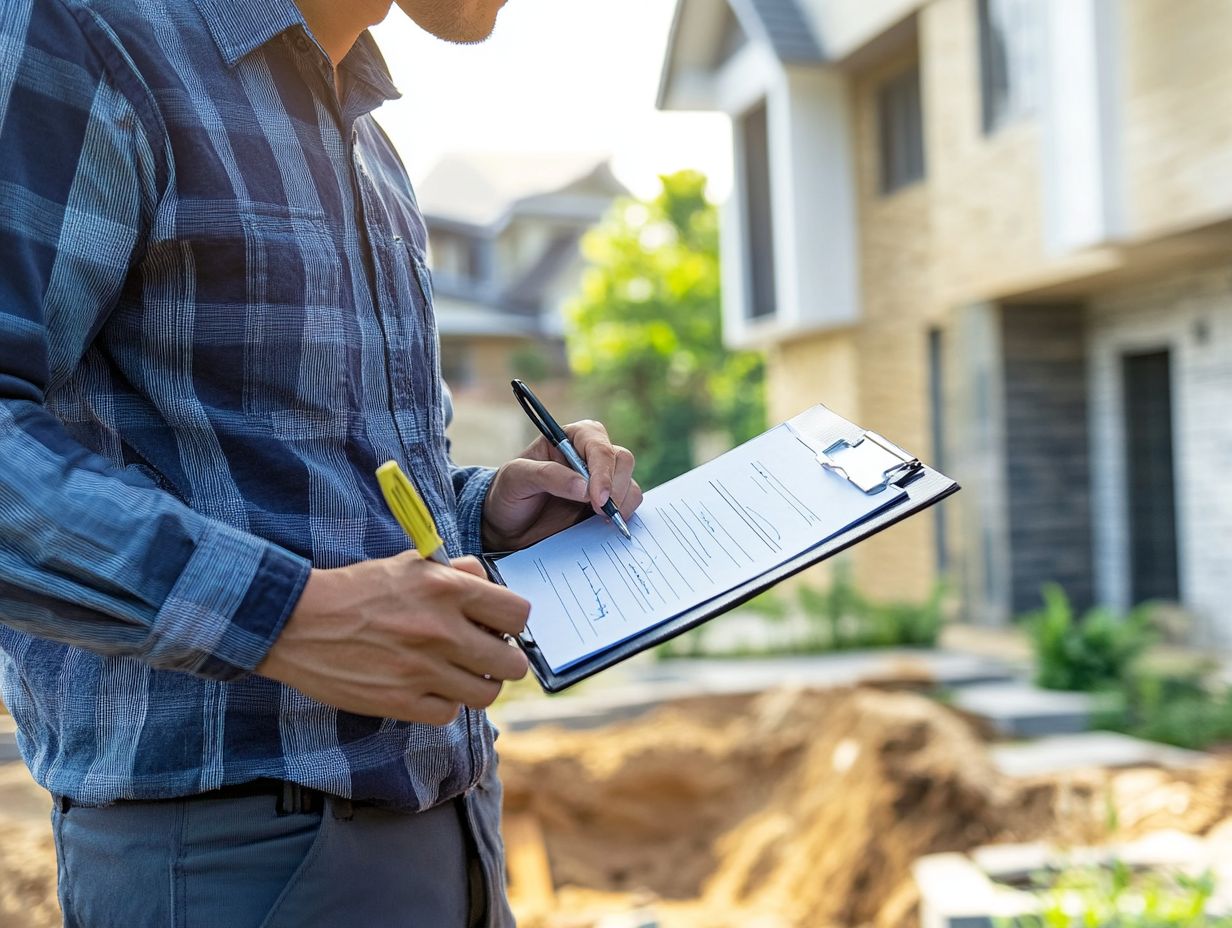
Attention to detail can save you huge headaches later!
Extensive knowledge and experience help inspectors identify and assess potential problems accurately.
Good communication skills ensure findings and recommendations are conveyed clearly to clients.
1. Attention to Detail
Attention to detail is a hallmark of a skilled home inspector, setting you apart in a crowded field. By meticulously examining every aspect of the inspection, you ensure high industry standards while delivering comprehensive inspections with exceptional service.
This sharp focus enables you to uncover hidden issues that might escape an untrained eye, such as subtle signs of water damage or structural weaknesses.
For example, tools that detect dampness in walls or floors can help you find hidden leaks early, preventing costly repairs down the line. Infrared cameras can reveal thermal irregularities in insulation and electrical systems, helping you pinpoint areas that need immediate attention.
By using these advanced tools, you enhance your ability to provide precise assessments, ensuring your clients are well-equipped to make informed decisions about their property investments.
2. Extensive Knowledge and Experience
A qualified home inspector brings a wealth of knowledge and experience, often supported by professional certifications from respected organizations like ASHI and InterNACHI. Understanding how to choose a home inspector ensures reliable insights into property conditions during your home buying journey.
The home inspection field is constantly evolving, making continuous education crucial. Online courses offer flexibility to stay updated with the latest industry standards, technologies, and regulations.
Engaging in ongoing training helps inspectors refine their skills and adapt to emerging trends, ultimately translating that enriched expertise into more effective support for you.
This commitment to education enhances inspection accuracy, builds trust, and leads to a more positive overall experience in your home buying process.
3. Good Communication Skills
Good communication skills are essential for home inspectors, just as they are for a successful real estate agent. Clearly conveying information helps build strong relationships and ensures clients grasp all aspects of the inspection report, reflecting the qualities of a great real estate agent.
This is especially important in a field where clients can feel overwhelmed by technical jargon. When you distill complex details into concise summaries, clients feel more confident in their understanding and decision-making.
For instance, using video conferencing tools or interactive presentation software can significantly enhance how you share findings, visually guiding clients through issues in real time.
Follow-up emails that summarize key points are helpful, allowing clients to easily revisit crucial information as they navigate the home-buying journey.
Ready to find the right home inspector? Let s get started today!
4. Thoroughness and Efficiency
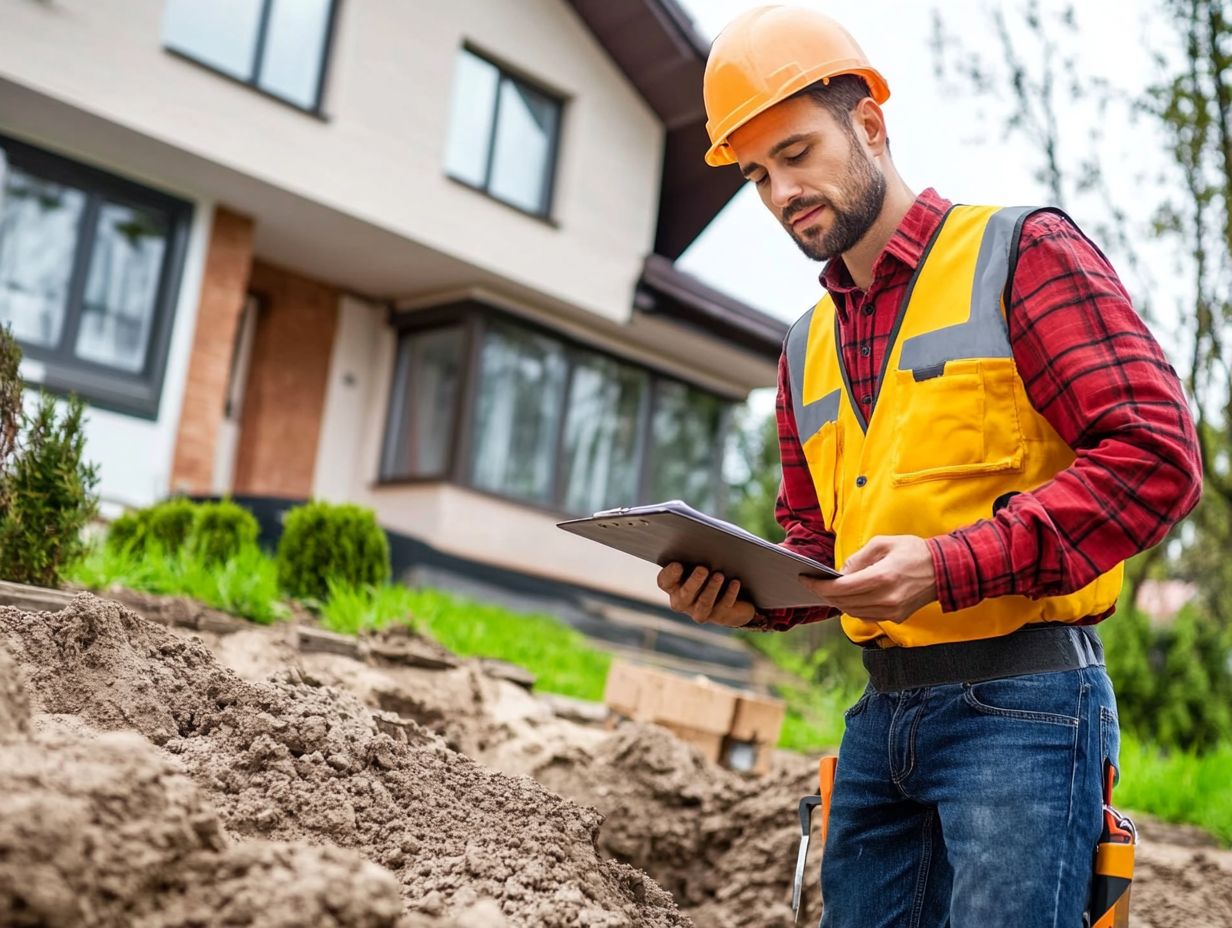
Thoroughness and efficiency in home inspections are crucial. They ensure every part of the property is checked and documented quickly.
Balancing these elements helps inspectors give you valuable insights without delays. This is essential in today s fast-paced real estate market.
Using structured checklists and special tools enhances the process. Inspectors follow a clear framework to ensure nothing is missed.
This method identifies potential issues and streamlines the inspection. As a result, your home inspection report becomes detailed and accurate.
Ultimately, this enables you to make informed decisions without unnecessary stress.
5. Professionalism and Integrity
Professionalism and integrity are vital for home inspectors. They build trust with clients and uphold strong ethical standards, which are key factors to consider when thinking about how to choose a home inspector, making you a dependable partner.
Respect and transparency can enhance your reputation significantly. When clients know you ve thoroughly vetted a property, they are more likely to recommend you.
Adhering to ethical practices fosters long-term client relationships. It also promotes accountability within the industry, inspiring all inspectors to maintain high standards.
Your commitment to ethics positions you as a trusted advisor in a competitive market.
What Does a Home Inspector Do?
A home inspector plays an important role in your home buying journey. They thoroughly check the property and provide a detailed report highlighting any concerns.
These professionals carefully check various aspects of the home, including structure, roofing, plumbing, and electrical systems. They document their findings with notes and photos, creating a clear picture of the property’s condition.
Their knowledge of local building codes helps them offer insights you might miss. This expertise aids in negotiations and protects your investment.
What Are the Essential Qualifications for a Home Inspector?
Key qualifications for home inspectors include professional certifications and specialized training. To ensure a thorough evaluation of property conditions, consider following these 5 tips for a productive home inspection.
These credentials boost your credibility and instill confidence in clients looking for trustworthy assessments. The industry is evolving with technology and changing codes, making ongoing education essential.
By committing to continuous training, you enhance your ability to spot issues that might go unnoticed. Staying updated on the latest practices ensures your evaluations are accurate and thorough.
What Are the Common Red Flags to Look for in a Home Inspection?
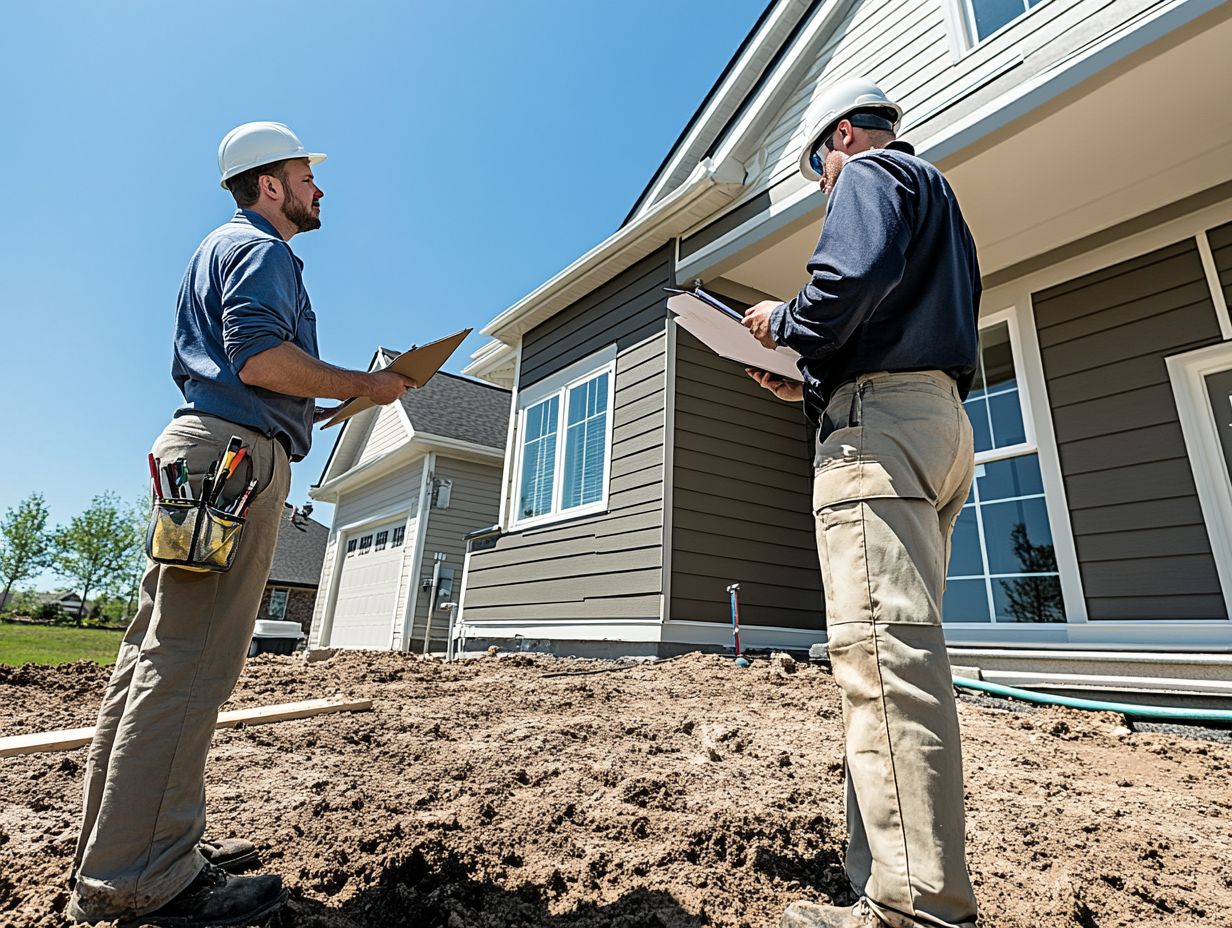
During a home inspection, look for common red flags. These include signs of moisture, poor heating, ventilation, and air conditioning (HVAC) maintenance, and mold.
Check for critical indicators like outdated electrical systems, foundation cracks, and pest infestations. These issues can threaten the property s value and the safety of its occupants.
A neglected roof can lead to water damage, which sets the stage for mold growth and escalating repair costs. Don t overlook specialized testing, like radon detection. Elevated radon levels can pose serious health risks that might go unnoticed without thorough examination.
Identifying these hidden problems early in the inspection process is essential. It helps ensure a safe living environment and preserves the integrity of your investment.
How Can a Home Inspector Help with the Home Buying Process?
A home inspector plays a pivotal role in your home buying journey. They deliver essential insights about property conditions through a detailed report, enabling you to make informed decisions.
This comprehensive assessment reveals hidden issues, from structural problems to potential safety hazards, which could lead to costly repairs in the future.
By highlighting these concerns, the inspector helps you understand the true condition of a property. They also provide valuable maintenance recommendations to keep it in top shape.
The detailed report serves as a crucial tool during negotiations. It gives you leverage to secure better offers or request necessary repairs before finalizing your purchase.
With a knowledgeable inspector by your side, you can approach the process confidently, fully aware of what you are committing to.
What Are the Benefits of Hiring a Qualified Home Inspector?
Hiring a qualified home inspector offers a wealth of benefits. You get thorough inspections that provide peace of mind and informed choices throughout your home buying journey.
These experts meticulously evaluate every aspect of a property, assessing everything from structural integrity to potential safety hazards. They are invaluable allies in your purchasing process.
According to the National Association of Home Inspectors, inspected properties typically sell for an average of 15% more. This reinforces the idea that engaging with professionals safeguards your investment while enhancing its resale potential.
Satisfied clients rave about the unparalleled attention to detail and prompt communication they receive. A diligent inspector can transform what could be a stressful journey into a seamless and confident experience.
How Can One Find a Reliable Home Inspector?
Finding a reliable home inspector begins with seeking customer referrals, browsing excellent reviews, and consulting local resources like the Chamber of Commerce. This ensures you select a trustworthy partner in your home-buying journey.
Once you’ve laid that groundwork, dig deeper into the inspector’s qualifications and experience. Look for professionals with certifications from reputable organizations, reflecting a commitment to ongoing education in the field.
Networking can significantly enhance your search. Conversations with real estate agents or local homeowner associations can unveil seasoned inspectors who might not be prominently advertised.
Engaging with online community forums provides firsthand insights from other home buyers. This allows you to assess the reliability and thoroughness of various inspectors.
Frequently Asked Questions
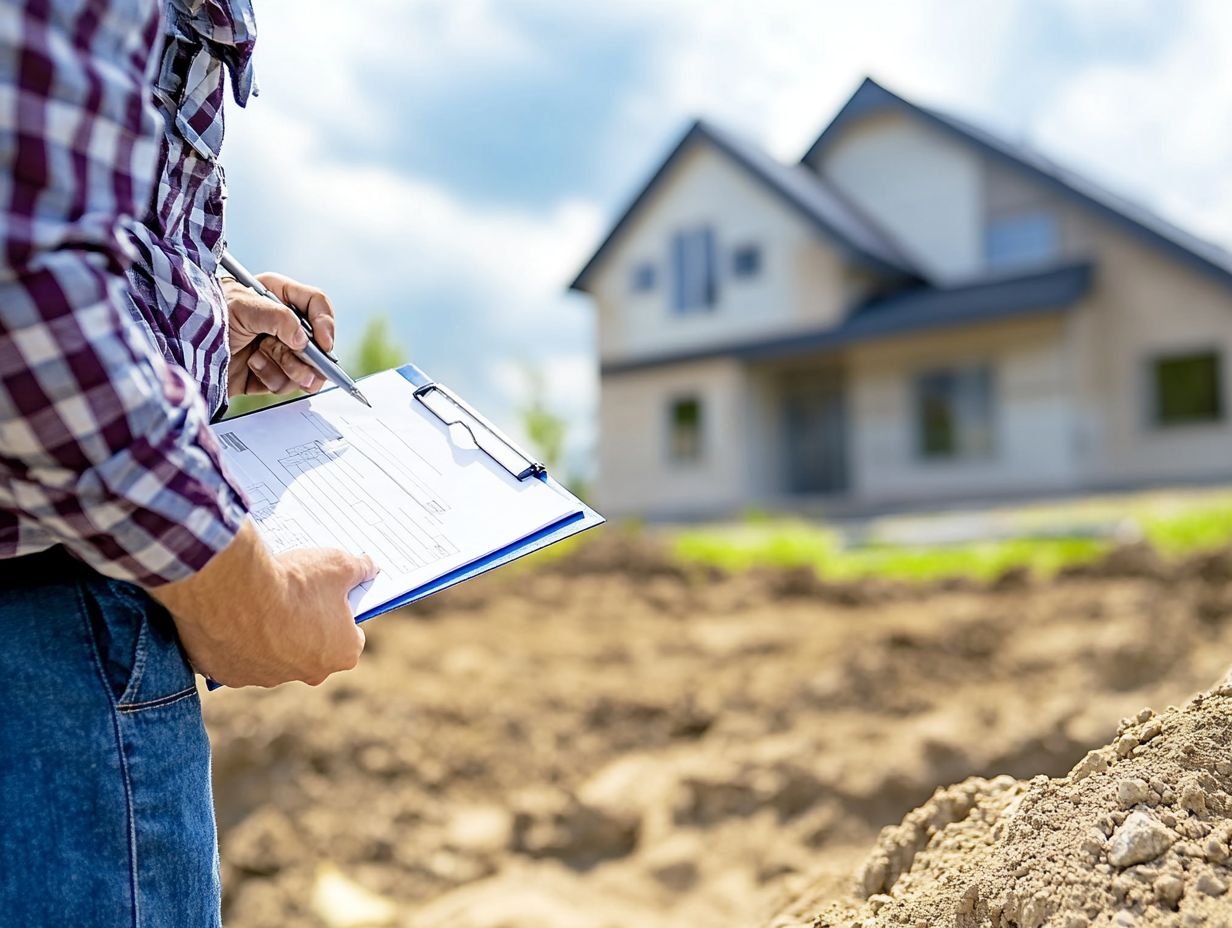
What are the 5 must-have qualities in a home inspector?
Curious about what makes a great home inspector? The 5 things to know about home inspections include must-have qualities such as attention to detail, thoroughness, experience, communication skills, and knowledge of building codes and standards.
Ready to find the perfect home inspector? Start your search today!
Why is attention to detail important in a home inspector?
Attention to detail is crucial for home inspectors, as it helps them spot potential issues that others might miss. To ensure you’re making the right choice, learn how to choose the best home inspector.
What role does thoroughness play in a home inspector’s job?
Thoroughness is key for home inspectors. It means they evaluate every part of the property, including hidden areas like plumbing and electrical systems.
Why is experience an important quality in a home inspector?
Experience matters in home inspection. It equips inspectors to recognize issues and suggest reliable repair options.
How do communication skills benefit a home inspector?
Strong communication skills are vital for home inspectors. They need to clearly share their findings and address client questions, which is crucial for ensuring a successful process, as highlighted in 5 tips for a smooth home inspection experience.
Why is knowledge of building codes and standards important for a home inspector?
Knowledge of building codes is essential for home inspectors. This expertise ensures that homes meet safety and regulatory standards.

